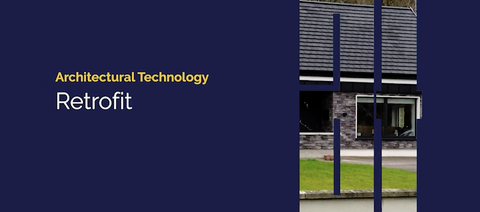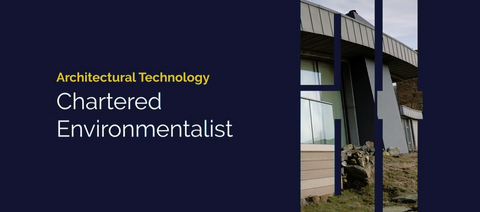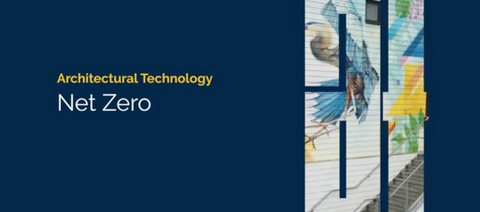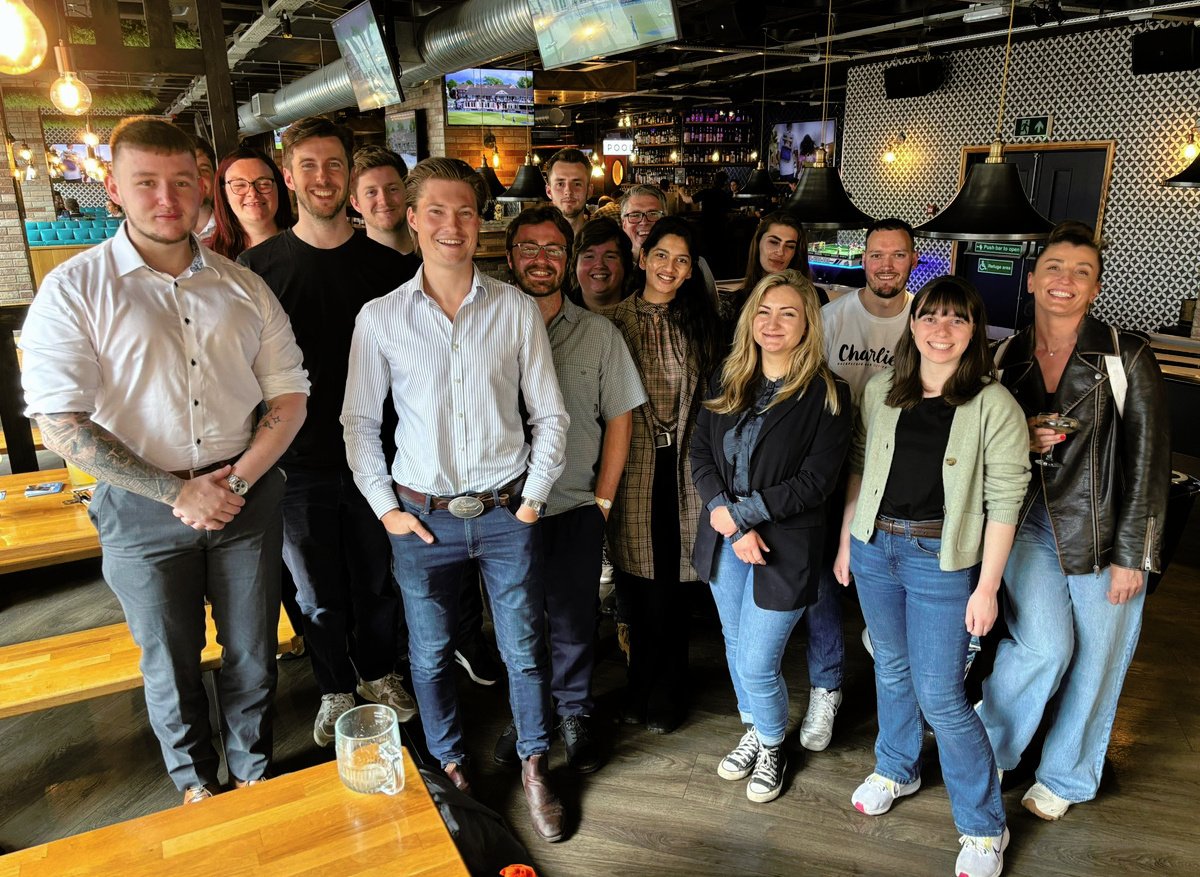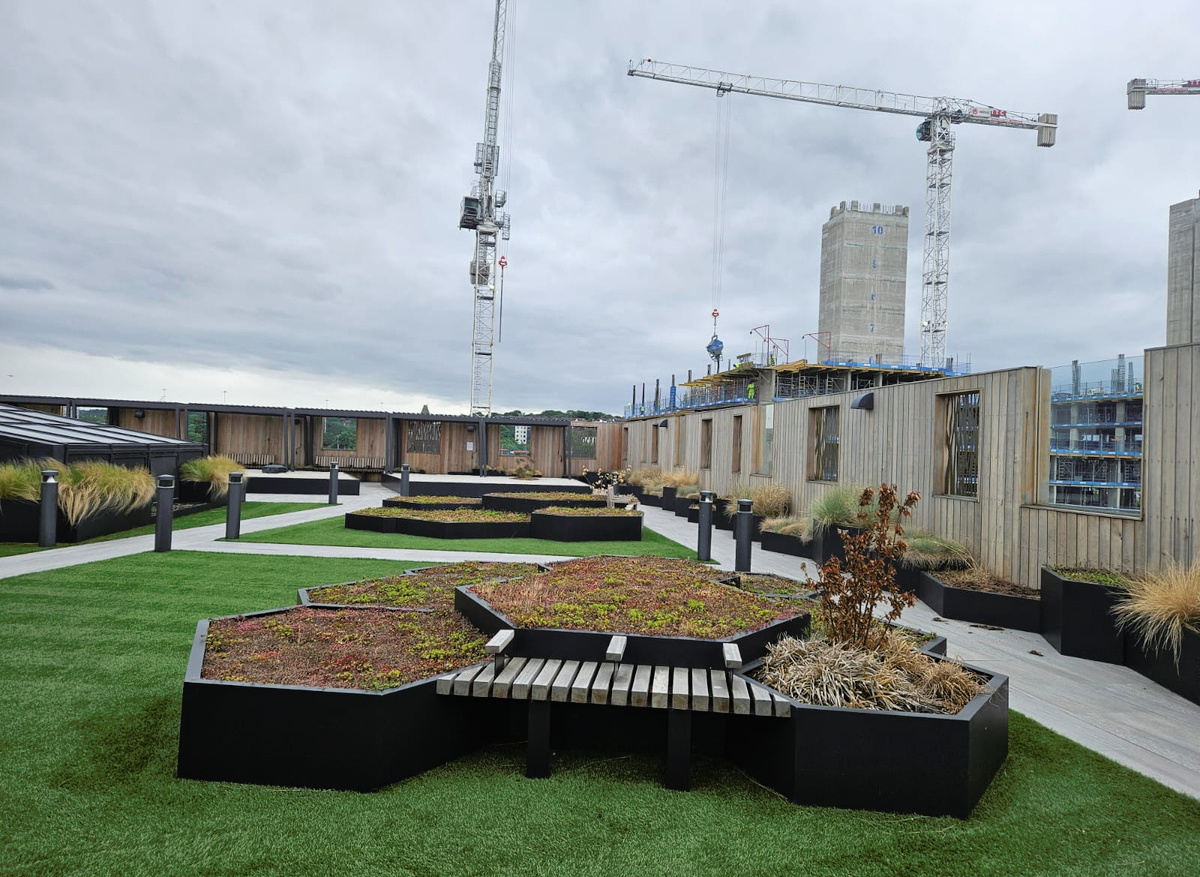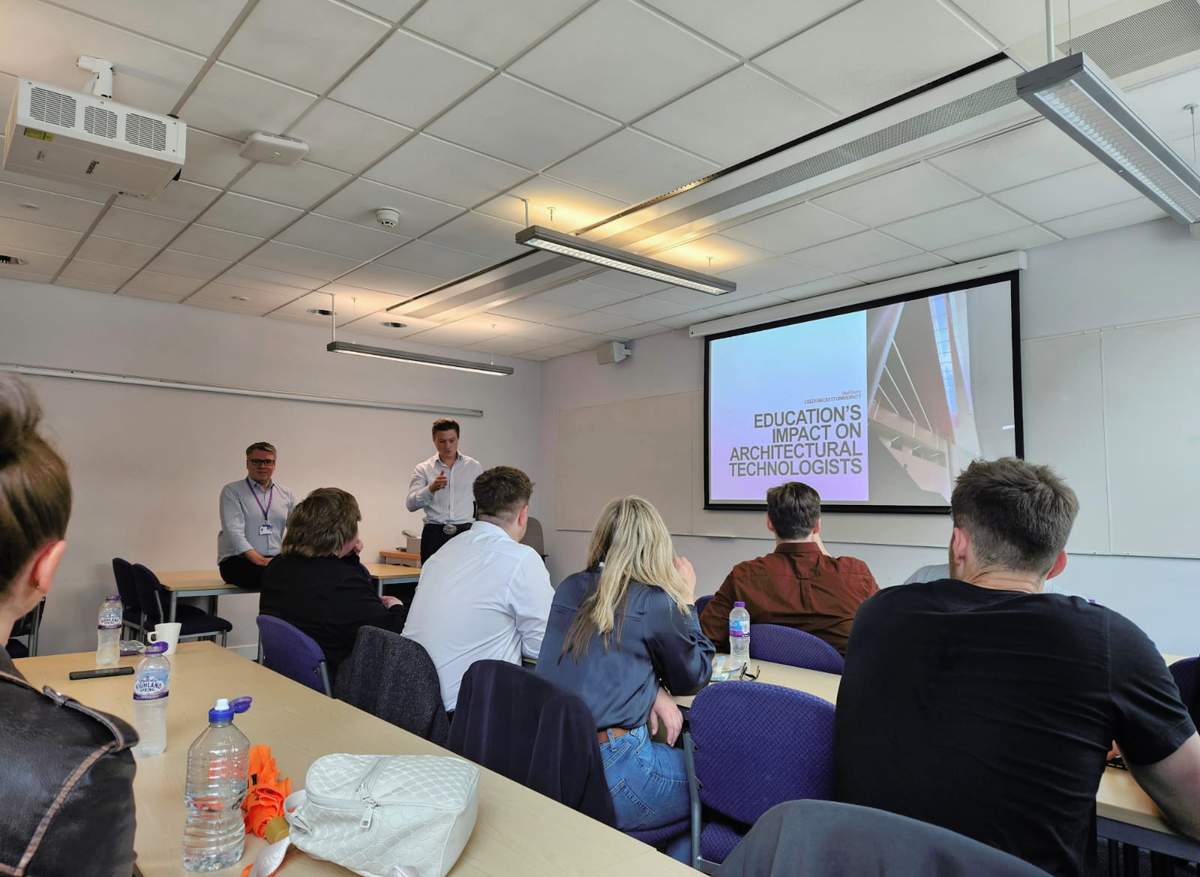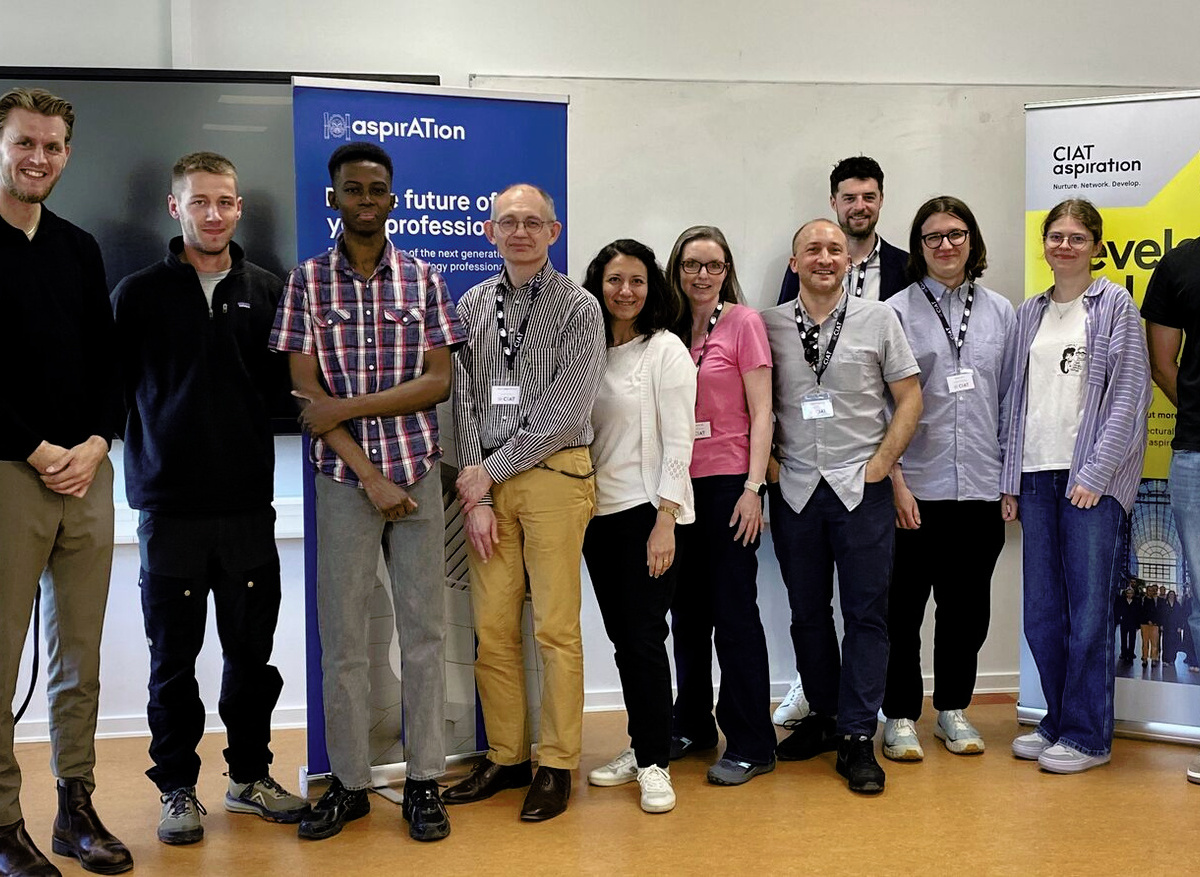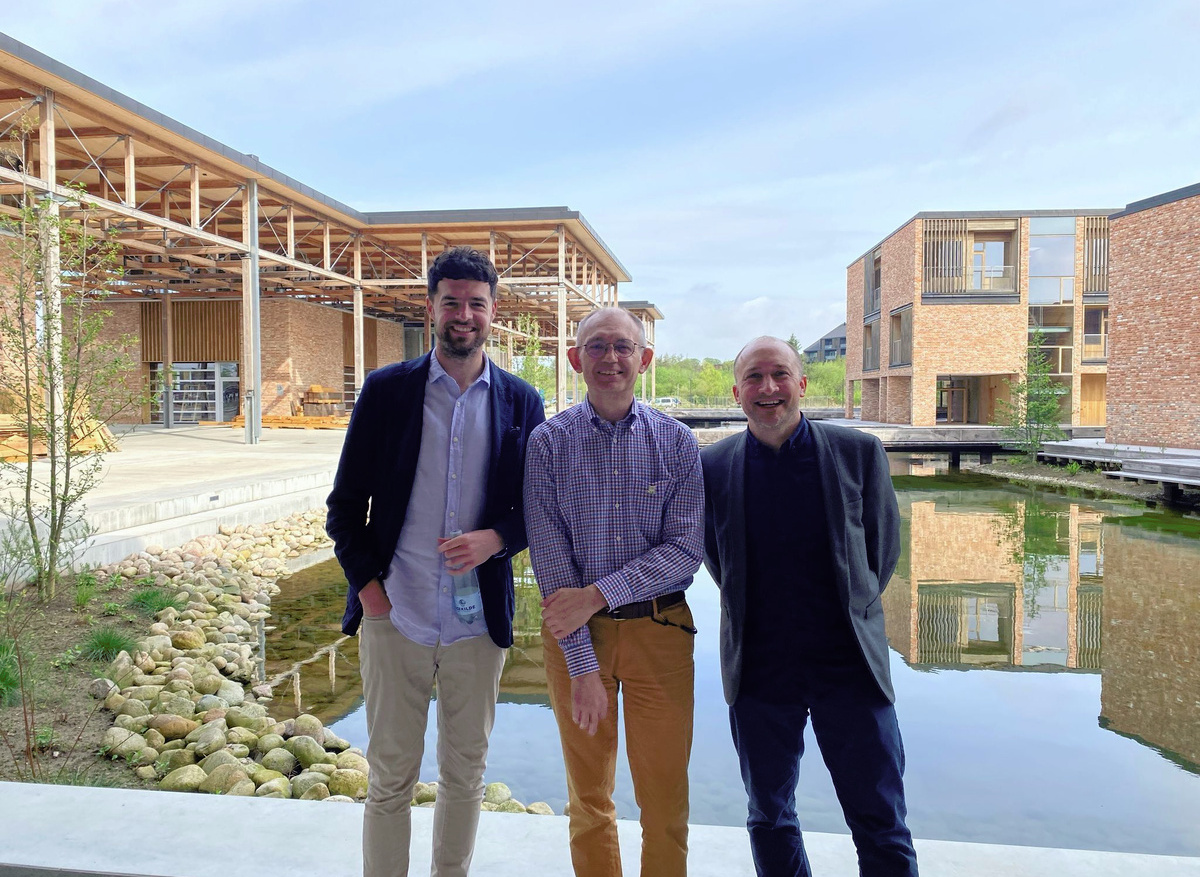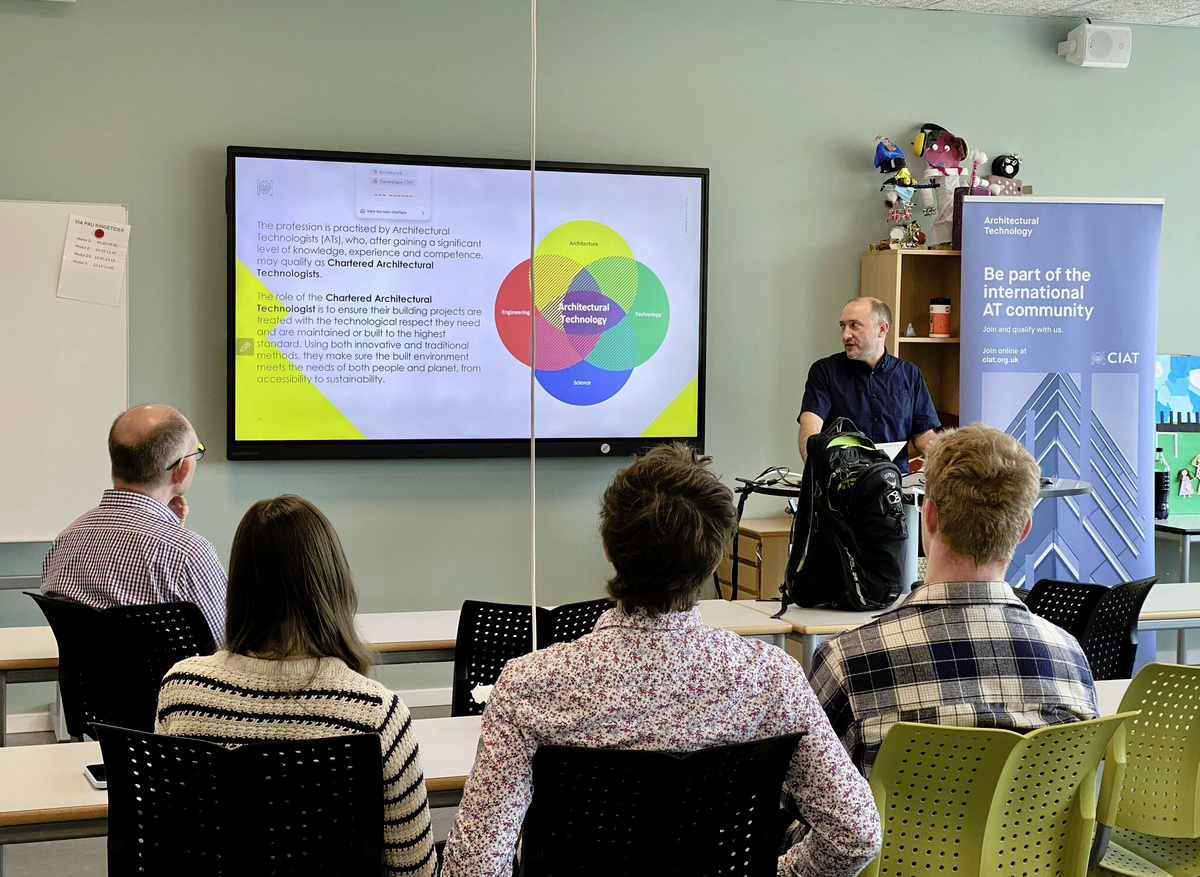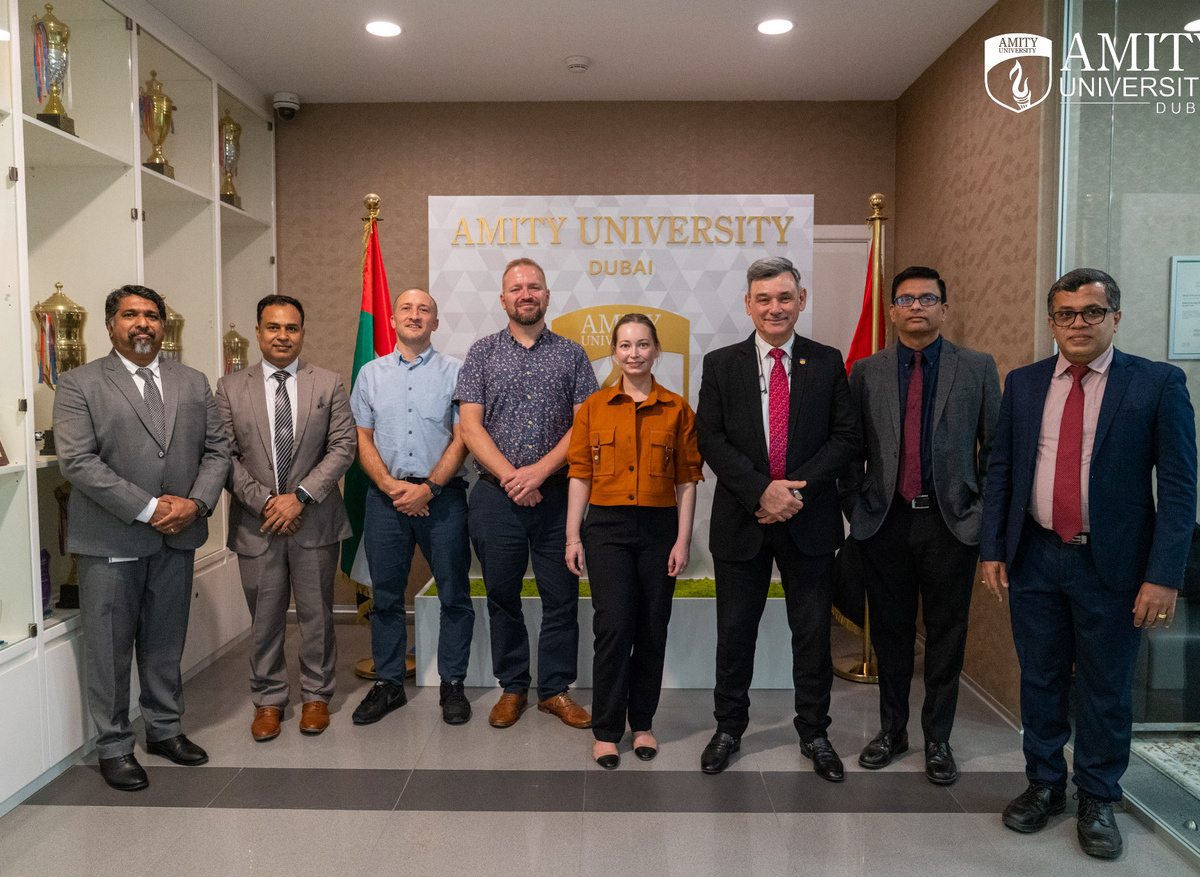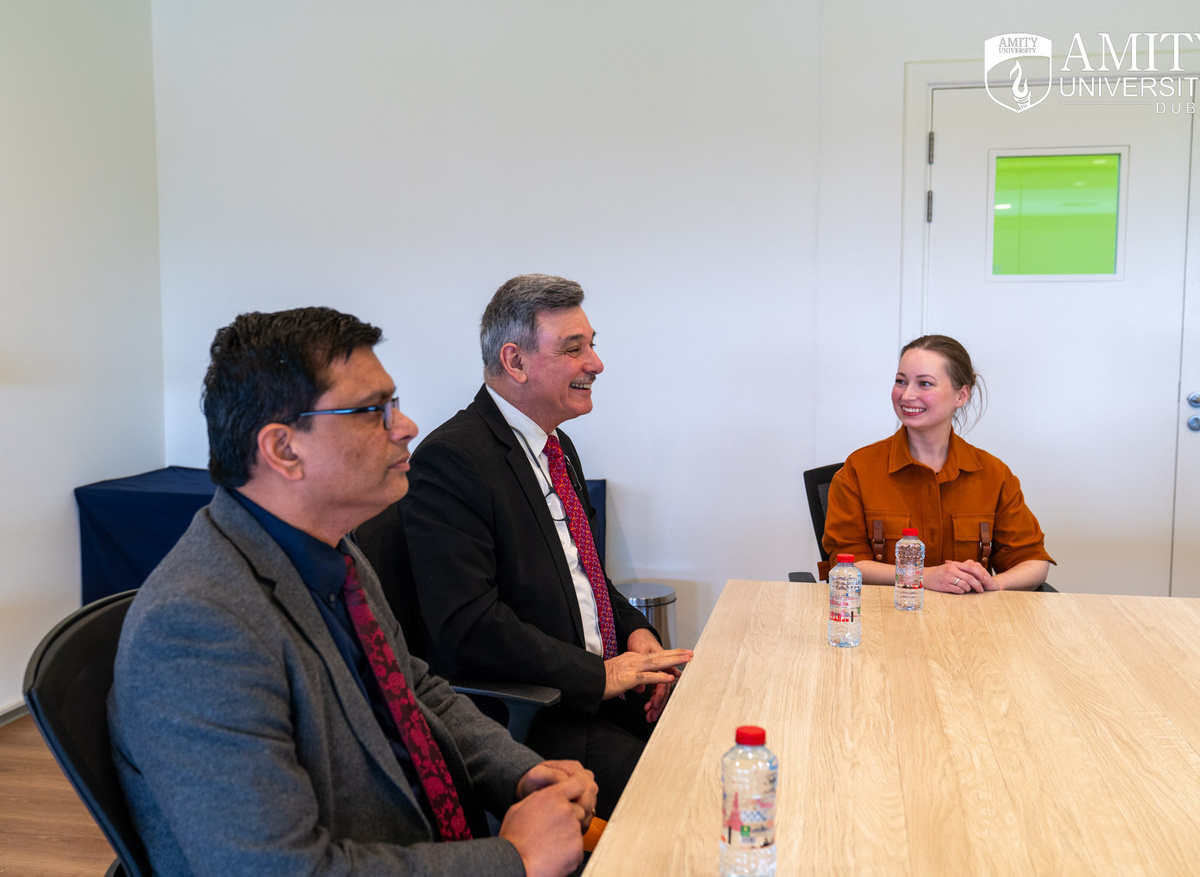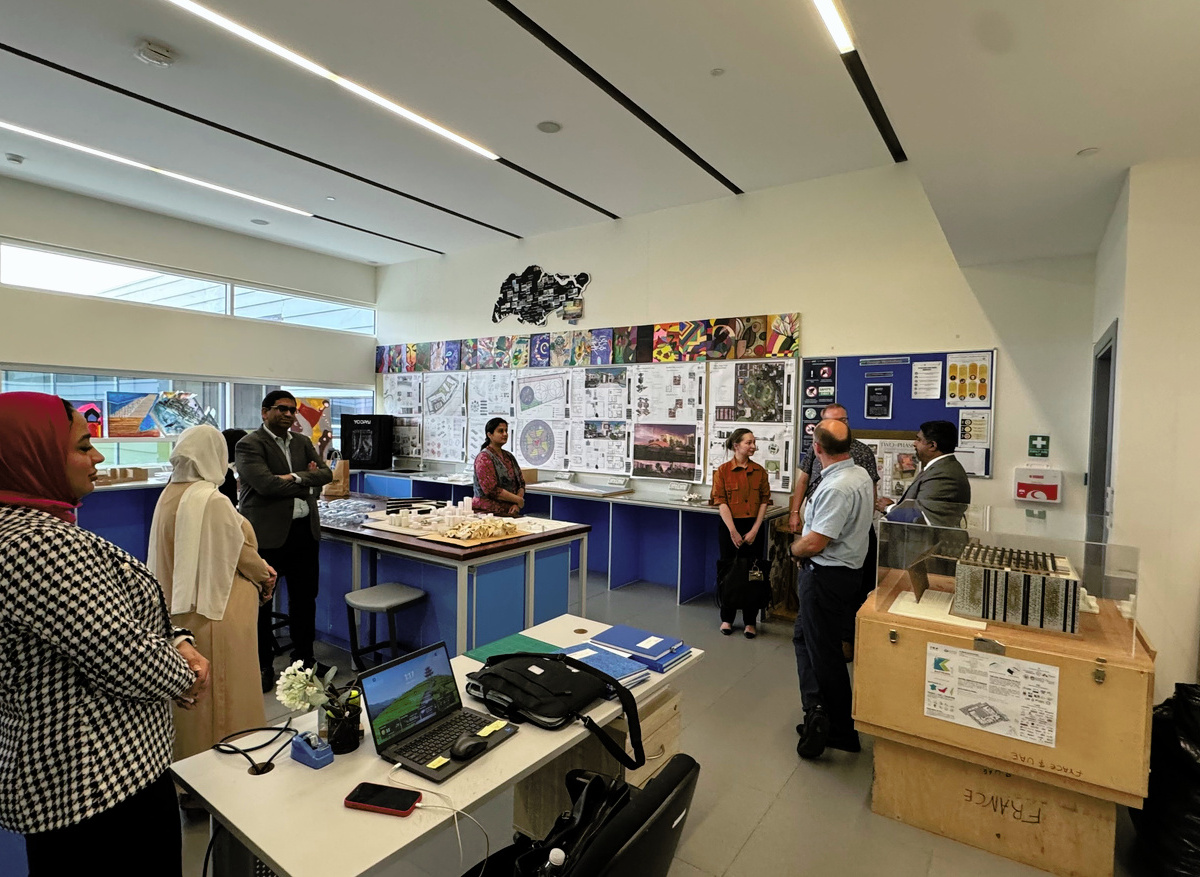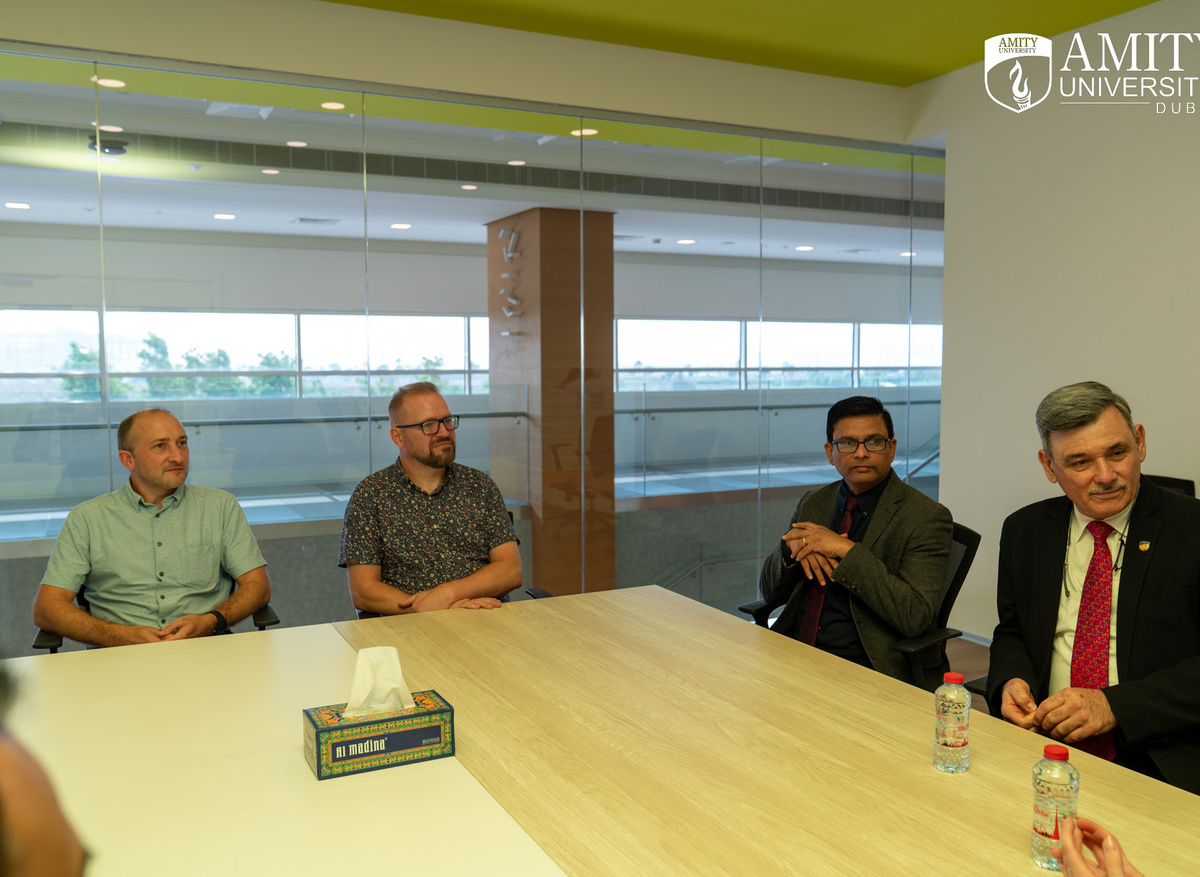Annual Review 2024-25
From the President
I’m proud to say that these last two years as your President have seen Architectural Technology grow further in stature and respect, with the discipline and profession gaining traction and the increased attention of government officials, publications and beyond. As we celebrate our sixtieth year as an Institute, our members continue to excel, particularly in their response to the changing landscape of the built environment sector and the urgent issues facing design professionals, such as reaching net zero, pledges to build millions of new homes, and the rise of generative AI.
As I prepare to pass on the Presidential torch for a second time, I am proud to have served such a vibrant, hard-working, and dedicated community. Yes, that’s right, being President was so nice I did it twice! And now that Usman Yaqub FCIAT will be taking over, I wish him all the best and hope he gets as much out of the role as I did.
This Annual Review covers the period from November 2024 to November 2025 and showcases the strides we have been making and will continue to make as we move forward into the next sixty years of CIAT.
It’s been an honour serving and representing the Architectural Technology community and I can’t wait to see the discipline reach new heights in the years to come.
Eddie Weir PCIAT
President
Lead and promote safe, sustainable and innovative practice
In July, we announced our support for regulation of embodied or ‘whole life’ carbon in construction, through the proposed ‘Part Z’ Building Regulations, as an essential step to delivering a net zero built environment sector.
The ‘Part Z’ Regulations are an industry-proposed amendment to The Building Regulations 2010, which would require developers to assess and report on the emissions embodied in the construction of a new building, and would allow for limits to be set on those embodied emissions, which could be ratcheted down over time, as low-carbon materials and processes improve. Our endorsement positioned us as a strong advocate for sustainable design and low carbon construction.
In September, the Institute launched a new report, titled Beyond the Warm Homes Plan: A National Retrofit Programme for people and planet, which set out a plan to deliver holistic, design-led retrofits to ensure that homes are healthy, sustainable and resilient to a changing climate.
Across 25 recommendations, the paper laid out a comprehensive, deliverable plan for Government, building on the Warm Homes Plan, utilising grants and low interest loans to expand access to retrofit measures. We see this as a vital report if we are to achieve net zero by 2050.
Our comprehensive review of the Code of Conduct and Conduct and Disciplinary Procedures continues, aligning with CIAT’s Charter, Bye-laws and Regulations. This work is scheduled for completion in 2027.
This year, the Practice & Technical Department have been working hard to merge and digitise the Project Quality Plan and Project Execution Plan in line with the Building Regulations etc. (Amendment) (England) Regulations 2023 for member use to ensure quality and compliance. This is expected to be completed by mid 2026.
In August, Vice-President Technical, Dan Rossiter FCIAT, was appointed to the Ministry of Housing, Communities and Local Government (MHCLG) Approved Documents Review Panel and Construction Products Reform working group. The panel plays an integral role in delivering the review of Building Regulations statutory guidance for England (the Approved Documents).
As Vice-President Technical for CIAT since 2022, Dan Rossiter leads the Institute's work on technical guidance and standards. He is an expert in building performance standards and digital transformation.
This year, we responded to over 40 consultations from government departments, regulatory and sector bodies, including MHCLG, the Department for Energy Security and Net Zero (DESNZ), the Department for Environment, Food & Rural Affairs (DEFRA), the Industry Competence Committee (ICC), and devolved governments. Key topics addressed in consultation responses have included planning reform and housing delivery, domestic energy performance and fuel poverty, construction product regulations, low carbon industrial products, workforce and skills, and payment reform.
If you have an interest in taking part in consultations, or would like further information on recent consultations, please contact the Technical Department on [email protected].
The Institute sponsored the Retrofit 25 exhibition (in partnership with the National Retrofit Hub) held at the Building Centre between March and September. The exhibition explored the solutions that are helping us navigate the barriers and uncovering opportunities involved in retrofitting the built environment. Dr Barry McCarron FCIAT gave an online presentation as part of the programming.
In the past year, the Institute has remained committed to supporting the objective to attain statutory recognition of Architectural Technologists to undertake the roles of Assigned and/or Design Certifier in Ireland and continues to lobby and engage with the Minister for Housing, Local Government and Heritage.
The publication of the Procurement Survey findings this year highlighted the barriers to public sector procurement for Chartered Architectural Technologists, which informs national policy engagement. The survey received 379 responses, accounting for approximately 4% of the membership, telling us there is still much work to do to ensure ATs are being represented and promoted.
The Institute continued to strengthen its links with groups that look at professional competence. This year, it became involved with both the Industry (Led) Task and Finish Group on Organisational Capability, and with the Construction Industry Council’s (CIC) Professional Competence task force.
Throughout the year, we continued to engage and collaborate with MHCLG, Building Safety Regulator (BSR), Construction Industry Council (CIC), the British Standards Institution (BSI), and DEFRA, among many others, to promote the discipline and improve and upskill the industry.
During the year, work progressed on the development and review of Continuing Professional Development (CPD) requirements for CIAT Chartered Practices, aimed at strengthening professional competence and enhance the overall value of CIAT Chartered Practice status.
The initiative aims to ensure that CIAT Chartered Practices not only maintain technical excellence but also demonstrate strong business management. By aligning CPD content with the Professional Standards Competency Framework (PSCF) and member feedback, the Institute continues to support practices in meeting the evolving demands of the built environment and reinforcing CIAT’s reputation for professionalism and quality.
A Detailing working group was established to generate guidance that can be shared with educational establishments that offer Accredited Programmes so that students are supported in improving their detailing abilities and enhancing their employability after graduating. The guidance is also intended to assist lecturers plan how to deliver appropriate knowledge to students throughout their studies in line with the requirements outlined in the PSCF.
Three new films were added to the Where It’s AT series:
Enhance our value proposition
As we entered our seventh decade, the Institute reviewed and published its revised Strategic Plan. It sets out a plan to achieve our aims and helps us shape our operational plan, allowing us to more effectively manage our resources and focus our energy into doing the best we can for all those involved in Architectural Technology. It can be found here.
The project to implement a new CRM system and replace our existing outdated database was completed in March when the MS Dynamics system went live, with the new website going live in April. The CRM is a fit for purpose, intuitive and integrated system to optimise efficiencies such as financial, administrative, accreditation, events management, data analysis, and member and affiliate engagement. The CRM has introduced new processes which enable us to be more agile and efficient, and allow improved useability and functionality for members and affiliates.
The Institute continued to work with relevant stakeholders across each of the four home nations in relation to apprenticeships and was represented at numerous meetings with educational establishments and employers. Click here for more information on apprenticeships.
CIAT, alongside academics and industry practitioners, have been active in the development of an Architectural Technology apprenticeship in Wales, with assistance from CITB Wales. The consultation for this closed on 31 October and it is anticipated to be launched in September 2027, provided it receives funding from Medr, the Commission for Tertiary Education and Research.
The PSCF was successfully published in January, and we undertook the process to phase out the 2019 Professional Standards Framework (PSF).
The Professional Standards Competency Framework (PSCF) outlines the standards and competency required to qualify as a Chartered Architectural Technologist. This framework is set out in three distinct stages that illustrate the mandatory standards that applicants undertaking the Professional Assessment (PA) process must satisfy to qualify as a Chartered Architectural Technologist and use the MCIAT designation. The three stages comprise the Educational, Practice and Professional Standards.
To support those wishing to qualify as a Chartered Architectural Technologists, a suite of professional films was published on our YouTube channel.
This year, CIAT’s portfolio of Accredited and Approved Programmes reached 59 in total (just one off 60 for our 60th year!). These include 40 Accredited Honours degree level, with London Metropolitan University’s BSc (Hons) Architectural Technology gaining accreditation in June 2025, 9 Accredited Masters degree level, and 10 Approved programmes.
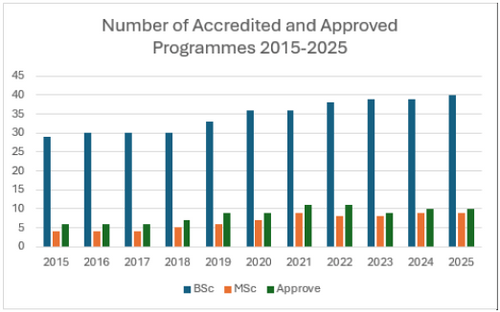
During the year, the AT CPD Register expanded to 18 providers, offering 76 courses on topics ranging from BIM, CDM 2015, fire, conservation, timber technology, materials, asbestos management, insulation, contract awareness, leadership and professional development, off-site construction, and zero carbon.
The ‘Where it’s AT: Insight into Architectural Technology’ events across the year were a huge success, delivered throughout the UK, Republic of Ireland, and Denmark, and covering topics such as career paths, diversity of opportunities, membership journeys, and project and practice insight.
This year, the Institute awarded a record number of Fellow Memberships since its launch to those who have demonstrated significant contribution to and/or excellence in Architectural Technology. The total number of Fellow Members reached 146.
The Institute bestowed four Honorary Fellow statuses to:
-
Diane Dale, former Head of Practice & Technical, who demonstrated excellence in Architectural Technology, and whose work has made a significant contribution to, and positive impact on the discipline and profession.
-
Danny Kearney, Principal, DMK Communications whose work has had a positive impact on Architectural Technology.
-
Fergal Walsh, Principal, Gensler who demonstrated excellence in Architectural Technology and whose work has also had a positive impact.
-
Alison Watson MBE, Founder & Chief Executive of Class of Your Own Ltd, whose work likewise had a positive impact on AT.
Raise profile and awareness
This year’s AT Awards event took place on 26 September at the grand One Marylebone, the first floor of a Grade I listed former Anglican church, designed and built by Neo-Classical architect John Soane in 1828, and known as the Holy Trinity Church. With brand new award categories christened and drinks and food galore, it was a wonderful evening celebrating and awarding the best Architectural Technology has to offer. The event can be watched here.
In February, the Institute published the Architectural Technology document, which defines the discipline and the profession in a manner suitable for the general public, in clear, easy to understand language.
The document grants a universal answer to the question, ‘What is Architectural Technology?’, standardising the definition of AT and helping define it in the eyes of the public, which further promotes and legitimises the discipline and profession to a wider audience.
David Comiskey FCIAT from Ulster University and Dr Suha Jaradat FCIAT from Edinburgh Napier University became Professors in Architectural Technology, demonstrating the evolution and maturity of the discipline within academia.
The AGBC scheme, which is a formal mechanism to strengthen the relationship between organisations and the Institute, goes from strength to strength, with 25% growth in registrations over the year. We welcomed PozzoniArchitecture Ltd, Arcadis, Gerflor & Gradus, Calvert Brain & Fraulo Architectural Limited, HLM Architects, and Bridgend County Borough Council as Gold AGBCs.
aspiration, CIAT’s global community of members and affiliates that comprises students, graduates, Associates, affiliates and recently qualified Chartered Architectural Technologists, had another great year of community and events, culminating in the group’s Educational Trip in Bristol in September.
Organised by Joe Hyett MCIAT and Adam Green ACIAT, the aim of the Bristol trip was simple: to connect, inspire, and give people the chance to explore a new city while learning more about the profession and each other. Across the weekend, they packed in a great mix of learning, networking and activities, such as a site visit to the Brabazon development (hosted by YTL Developments Ltd), a welcome evening at Harbour House, and a visit to architectural practice Ridge and Partners LLP. And that’s not even getting to the group dinner, museum visit, or city-wide treasure hunt!
Also, in May, aspiration Chairs all met in Leeds for their annual meeting and enjoyed a successful site visit and networking organised by aspiration Yorkshire.
In May, CIAT and seven other parties signed a Memorandum of Understanding with the purpose of creating a built environment sector as diverse as the communities it represents; that acts inclusively, treats everyone fairly and provides a culture that delivers the best outcomes for the diverse societies in which and for whom our collective memberships work. The parties are the Chartered Institute of Building, the Chartered Institution of Civil Engineering Surveyors, the Institution of Civil Engineers, the Landscape Institute, the Royal Institute of British Architects, the Royal Institution of Chartered Surveyors, and the Royal Town Planning Institute. This partnership will be known as B.E. Inclusive. The signatories “recognise the potential of our combined membership to affect a meaningful and tangible improvement in Equity, Diversity and Inclusion (EDI) standards across the built environment.”
Earlier, in January, the Institute relaunched its AT EDI Society and Chaired by Tom Gray MCIAT. The Society’s aims are to:
-
Guide CIAT on its commitment statement.
-
Update the current Equity, Diversity and Inclusion Policy.
-
Create and develop an Equity, Diversity and Inclusion Strategy.
-
Set aims and how they can be achieved such as equality monitoring and learning and development for the membership.
-
Prioritise collecting and using good quality people data to identify barriers and solutions.
-
Regularly audit, review and evaluate progress, using quantitative and qualitative data on both diversity and inclusion, to highlight where barriers exist and show the impact of initiatives, making appropriate changes to activities if needed.
-
Benchmark progress against other organisations and explore what others are doing to adopt and adapt ideas where appropriate.
-
Network with others from inside and outside the organisation to keep up to date and to share learning.
March saw the Institute publish its Social Media Guidelines and Strategy, providing a clear framework for members, affiliates and staff to engage professionally and effectively across digital platforms. The guidelines outline best practices for online communication, ensuring that content shared aligns with CIAT’s values and enhances engagement within the Architectural Technology community. The Social Media Strategy provides a framework to guide the Institute’s social media activities across its various platforms. It can be found here.
Engage and collaborate with external organisations
Over the course of the year, the Institute has worked hard to enhance the profile of the discipline and have our voices heard in government, proactively engaging on building safety, procurement reform, and sustainability. We have held dedicated meetings with four parliamentarians, including the former Shadow Secretary of State for Housing, Communities and Local Government, Kevin Hollinrake MP, and had constructive conversations with a further seven parliamentarians and three Ministers.
We were also pleased to have secured the tabling of nine parliamentary questions, which was the Institute’s first mention in parliament since 1996.
The Policy and External Affairs team secured regular, ongoing meetings with senior officials in the Ministry of Housing, Communities and Local Government (MHCLG) and other sector stakeholders, which will help elevate Architectural Technologists in matters of industry and housing policy. The team have also attended political party conferences, building links and starting relationships with parliamentarians and sector leaders.
This programme of engagement is supported by the development of detailed policy papers, briefings and consultations. We have worked hard to get our expertise heard on housing matters, circulating four parliamentary briefing notes, in addition to a new Policy Paper on a National Retrofit Strategy, and responding to policy and technical consultations (for further information on these responses, see Part 1 of this Annual Review, Lead and promote safe, sustainable and innovative practice).
This year we collaborated with APS on PD Registration processes, with the view to raising the bar of competency for all wishing to undertake the newly defined role of Principal Designer HRBs and Non-HRBs under the Building Regulations.
Discover! Creative Careers Month is an industry-led initiative designed to provide young people from England with encounters and experiences of the creative industries through in-school, workplace and online opportunities. This year’s event was the first time Architectural Technology was being promoted as a career option for school-aged children. Through this support, CIAT is also now working with Speakers for Schools, where Sam Lambert MCIAT and Spacy Bondarenko MCIAT will hold an online session to state schools around England sharing how they became Chartered Architectural Technologists and the kinds of projects that they work on.
CIAT sponsored Open City’s Accelerate Programme, which is a 10-week syllabus of workshops for 16–18-year-olds from underrepresented groups in London to raise their awareness of career avenues available within the built environment. From October to April, 120 students spend their Saturdays in workshops with teachers who are built environment professionals. Sessions included model making and walking tours of London, as well as visits to educational establishments.
The Programme has been running for 14 years and approximately 75% of the students that take part end up studying a built environment subject at undergraduate level.
As this is the first year that AT was promoted, we also approached London-based CIAT Chartered Practices and/or companies where Chartered Architectural Technologists work in to get involved to offer mentoring to those taking part in the Programme.
In September, Members presented to students at the Federation of Master Builders’ Build Academy in London as part of its Masterclass series. The Build Academy is a pilot skills project created in partnership between the Federation of Master Builders (FMB), the Construction Industry Training Board (CITB), and London-based Shooters Hill Sixth-Form College.
This was an opportunity to give to learners on a course created by the FMB site ready skills and work placements with its members, and who may not have had any prior knowledge of AT or the Institute. We look forward to collaborating with the FMB in the future.
We had the privilege of being an industry partner for Zigurat Institute of Technology’s 2025 ConstruWeek in September this year. The event directly related to the CIAT Accredited Masters in Global BIM Management Programmeoffered by Zigurat. The event’s theme was Beyond BIM: Better Information Management and brought together industry professionals to discuss the future of digital construction and the evolution from Building Information Modelling to Better Information Management.
The Institute hosted promotional visits to Denmark (Copenhagen, Aarhus and Horsens) to nurture and develop relationships with VIA University College (the first Accredited Programme outside UK and Ireland), as well as to review our Collaborative Arrangement with Konstruktørforeningen (KF).
We also hosted aspiration Europe social events and architectural site visits in these Danish cities, in tandem with carrying out research for our upcoming aspiration educational trip to Copenhagen in September 2026.
National Construction Summit and WorldSkills in Dublin were two key industry and stakeholder events promoting the discipline and profession, attended by thousands of current and future professionals supported by the Institute and the Centre Committee.
A CIAT delegation visited Dubai in October 2025 to raise the profile of the Institute, explore collaborative opportunities, engage with academic and professional partners, and support membership development across the region.
This trip consisted of holding Professional Assessment interviews in which we welcomed five new Chartered Members from Manipal Academy of Higher Education (MAHE) and 2025 AT Awards Project of the Year winning practice BSBG.
An accreditation visit took place at MAHE and discussions regarding potential accreditation were held with Amity and Heriot-Watt Universities. Practice visits were arranged with Foster + Partners, Jacobs, Gensler and BSBG to discuss membership and collaboration. Discussions with RICS were held to explore collaborative opportunities in the Middle East and Africa, and CIOB hosted a dual badged evening CPD event and a networking breakfast, which brought together more educational establishments, practitioners and stakeholders for future collaborative opportunities.
Following the Memorandum of Agreement (MoA) that was signed in September 2024 between CIAT and the Ministry of Higher Education and Scientific Research of Egypt (MoHESR), the Head of Education, Chair of the Education Board and the Vice President Education have had meetings with relevant stakeholders to progress the tenets within the MoA through possible events in 2026.
Remaining an effective and financially viable Institute
| 30 April 2025 | 30 April 2024 | |
|---|---|---|
| Tangible assets and investments | 1,826,019 | 1,667,359 |
| Current assets | 2,587,893 | 2,478,488 |
| Current liabilities | -410,857 | -279,699 |
| Provision of deferred taxation | -103,150 | -103,150 |
| Net assets | 3,899,905 | 3,762,998 |
| Capital and reserves | 3,899,905 | 3,762,998 |

